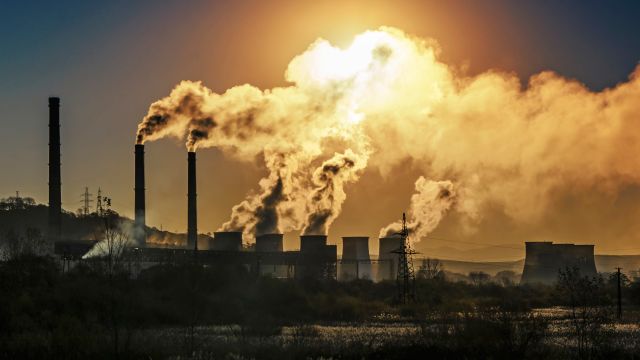Updated on March 3, 2023.
You probably know that pollution is bad for the earth and for your health. But do you know how dangerous it is?
In fact, pollution ranks on par with smoking in terms of worldwide causes of death, exceeding the impacts of war, terrorism, malaria, HIV, tuberculosis, and substance abuse combined. All told, pollution accounts for one in six deaths worldwide, or 9 million per year, according to data published in 2022 in The Lancet. While worldwide deaths due to household air and water pollution decreased since The Lancet’s original landmark study on the topic was published in 2015, an increase in deaths from toxic chemicals and outdoor air pollution have offset these declining numbers.
Global effects of pollution
Air pollution, both household and outdoor, is cited as the biggest contributor to the death toll, causing 6.7 million fatalities in 2019. Contaminated air and toxic chemicals have increased the number of deaths by 66 percent over the past two decades. Growing industrialization around the world is a driving factor and the deadly consequences tend to be more prevalent in low- to middle-income countries.
Pollution also levies a significant burden of illness on the world’s population. A variety of diseases, such as stroke, chronic obstructive pulmonary disorder (COPD), heart disease, and lung cancer may all result from air pollution. According to the World Health Organization (WHO), outdoor pollution caused the deaths of an estimated 4.2 million people in 2019, 37 percent of them due to stroke and coronary heart disease. A disproportionate share of these deaths (89 percent) occurred in low- and middle-income countries, with the largest numbers in Southeast Asia and areas in the Western Pacific. That same year, the WHO determined that 99 percent of people in the world are living in places that don’t meet basic standards for air quality.
"Pollution in rapidly developing countries is just getting worse and worse and worse,” said Philip Landrigan, MD, a pediatrician and professor of environmental medicine and global health at the Icahn School of Medicine at Mount Sinai in New York City, in a 2017 interview with NPR. “And it isn't getting the attention it deserves.”
In a 2022 interview with CNN, Richard Fuller, lead author of The Lancet’s updated study, said that “despite its enormous health, social, and economic impacts, pollution prevention is largely overlooked in the international development agenda.”
Pollution in the United States
Even though the United States has dramatically reduced its air pollution since passage of the 1970 Clean Air Act, researchers have found that it’s still causing a significant number of deaths, as well as other health issues such as low birth weights and reduced IQ levels in children.
In 2019, Dr. Landrigan, who also serves as director of Boston College’s Global Public Health Program and Global Observatory on Planetary Health, led a study on the effects of air pollution in Massachusetts that was published in Environmental Health. It showed that air pollution was a factor in an estimated 2,780 deaths in 2019, almost 5 percent of the state’s total deaths. Lung cancer was the most common condition related to air pollution, but it also caused cardiovascular disease, stroke, and chronic lower respiratory disease.
Landrigan’s study also linked air pollution to low birthweight and pediatric asthma. Researchers estimated a total loss of two million IQ points in children up to 9 years, an average loss of more than two performance IQ points per child.
How you can help reduce pollution
While you can’t completely avoid air pollution or eliminate it on your own, you can take steps to minimize your contribution to it. Here are a few ways:
- Drive your car as little as possible. Consider doing short, local errands on foot or by bicycle if you can.
- If you must drive, use less gas by consolidating several trips into one and turning off the car instead of letting it idle when making stops.
- Make sure your vehicle’s emissions systems are functioning properly.
- Avoid burning household trash.
- Plant trees wherever you can, whether on your property or in tree-planting programs in your community.
Take steps to improve the quality of indoor air
Indoor air pollution is a potential danger that you may be able to control to a certain extent. The U.S. Environmental Protection Agency (EPA) suggests a few methods to reduce air pollution in your home:
- Eliminate or control the source, such as by sealing off anything containing asbestos or adjusting your gas stove to reduce emissions.
- Improve ventilation and increase natural airflow throughout your home by opening windows and running fans when the weather permits. It’s important to take these measures during activities that may give off pollutants, such as when cooking, cleaning with chemicals, or doing maintenance work.
- An air purifier may be useful when combined with these steps, although different models vary in effectiveness. Note that air purifiers aren’t recommended for the removal of radon.
You can do a spot check on how healthy your home is, find out if your air is polluted, and follow steps from the EPA to improve indoor air quality.






